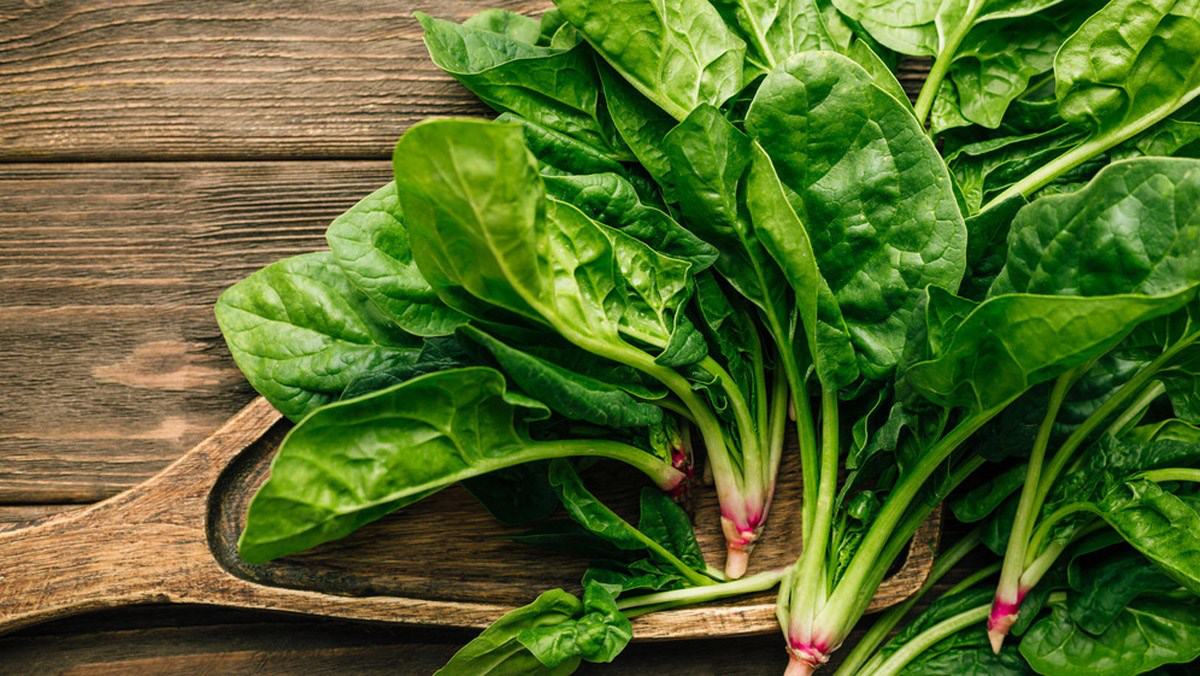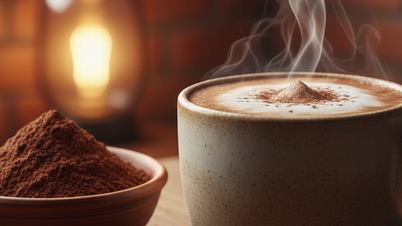Calcium is a particularly important nutrient that must be provided through diet because the body cannot produce it on its own. However, eating calcium-rich foods is not enough because there are some foods that affect calcium absorption in the body.
1. Factors affecting calcium absorption in the body
Calcium is a mineral that plays a very important role in the human body. It is a basic component of bones and teeth, and is needed for neuromuscular activity, heart activity, cell metabolism, and blood clotting.
According to Dr. Tran Thi Bich Nga, a nutrition specialist, the way to supplement calcium is through the food we eat every day or using calcium supplements. The safest and most effective way is to supplement calcium through a diet with calcium-rich foods such as: shrimp, crab, fish, snails, sesame, soybeans, wood ear mushrooms, spinach, egg yolks, milk and dairy products...
Note, if the diet has too much protein compared to the recommended needs, it will increase the risk of calcium deficiency. A diet with too much protein will increase calcium excretion through the urinary tract and increase the risk of kidney stones. You should limit the intake of coffee, alcohol, salt... because these substances often inhibit the ability to absorb calcium.
Additionally, the bioavailability of calcium can be affected by oxalates and phytic acids found in plant foods. These substances bind or complex with calcium and prevent its absorption, making it unavailable to the body.

Spinach is high in calcium but high in oxalates.
2. Some foods limit calcium absorption
Foods high in oxalates
Foods high in oxalates interfere with calcium absorption because they bind to calcium and make it unavailable for the body to absorb. For example, spinach is naturally high in calcium, containing the most calcium of all leafy greens with 260 mg of calcium per 1 cup cooked, but it is also high in oxalates, which reduce its bioavailability so that the body can only use 5% or about 13 mg of calcium.
Therefore, we should not depend on spinach as a main source of calcium because most of the calcium in it will not be absorbed by the body. Other vegetables containing oxalate such as green vegetables, sweet potatoes...
Foods high in phytic acid
Phytic acid is found in the bran layer of whole grains. Phytic acid binds to calcium and other minerals, making them insoluble and unabsorbable in the intestines. The calcium then passes out of the body without being absorbed.
Foods high in salt
Eating foods high in salt can hinder the absorption of calcium because when salt is excreted from the body, it takes calcium with it. Therefore, it is advisable to limit the consumption of packaged and canned foods high in salt so as not to affect the body's ability to absorb calcium.
Drinking too much caffeine
Caffeine in coffee, tea and soft drinks acts as a mild diuretic, so valuable calcium is excreted before the body can use it.
Drink a lot of alcohol
Drinking too much alcohol reduces the body's ability to absorb calcium because alcohol affects the pancreas and its ability to absorb calcium and vitamin D. It also affects the liver's ability to activate vitamin D, which is needed for calcium absorption.
Regular alcohol consumption also increases the risk of nutrient deficiencies due to poor diet and disrupted nutrient absorption. These include vitamin A, zinc, B vitamins such as folate, and nutrients more related to bone health such as calcium.
Some studies have shown that alcohol consumption increases bone resorption and reduces the body's ability to promote new bone formation and repair. This leads to impaired bone cell metabolism and weaker bones over time.

Should balance calcium-rich foods from animals and plants.
3. How to best help your body absorb calcium
For the body to absorb and use calcium best, we need to provide adequate nutrients, prioritizing the use of calcium-rich foods in daily meals.
You should balance your calcium-rich foods from animal and plant sources. You should not eat mainly calcium from animal sources because calcium from plants such as green leafy vegetables is also very well absorbed by the body.
Provides full vitamins and minerals such as: vitamins C, D, E, K, magnesium... Especially vitamin D because vitamin D helps regulate calcium levels in blood and bones, helping the body absorb calcium better.
Therefore, in addition to supplementing calcium-rich foods, we need to pay attention to choosing foods rich in vitamin D such as seafood, eggs, milk... in meals to provide vitamin D. In the diet, it is important to note that there is enough fat for vitamin D to be absorbed through the digestive tract better. At the same time, we should spend at least 10 - 20 minutes sunbathing in the morning every day to help the body absorb more vitamin D through the skin.
For calcium supplements through food, it is very rare to have excess calcium in the blood or excess storage in the tissues due to excessive calcium consumption because excess calcium when consumed will be excreted from the body. However, in cases of long-term use of high doses of calcium, the body will reduce its absorption or adversely affect vascular diseases, causing kidney stones, hypercalcemia and kidney failure... Therefore, it is important to note that calcium supplements should only be taken as prescribed by a doctor.
Source: https://giadinh.suckhoedoisong.vn/5-loai-thuc-pham-ngan-can-co-the-hap-thu-canxi-172241107165158054.htm


![[Photo] Prime Minister Pham Minh Chinh meets with Speaker of the Hungarian National Assembly Kover Laszlo](https://vphoto.vietnam.vn/thumb/1200x675/vietnam/resource/IMAGE/2025/10/20/1760970413415_dsc-8111-jpg.webp)


![[Photo] Solemn opening of the 10th Session, 15th National Assembly](https://vphoto.vietnam.vn/thumb/1200x675/vietnam/resource/IMAGE/2025/10/20/1760937111622_ndo_br_1-202-jpg.webp)
![[Photo] Chairman of the Hungarian Parliament visits President Ho Chi Minh's Mausoleum](https://vphoto.vietnam.vn/thumb/1200x675/vietnam/resource/IMAGE/2025/10/20/1760941009023_ndo_br_hungary-jpg.webp)
![[Photo] National Assembly Chairman Tran Thanh Man holds talks with Hungarian National Assembly Chairman Kover Laszlo](https://vphoto.vietnam.vn/thumb/1200x675/vietnam/resource/IMAGE/2025/10/20/1760952711347_ndo_br_bnd-1603-jpg.webp)




















![[Photo] The Steering Committee of the 2025 Fall Fair checks the progress of the organization](https://vphoto.vietnam.vn/thumb/1200x675/vietnam/resource/IMAGE/2025/10/20/1760918203241_nam-5371-jpg.webp)







































































Comment (0)